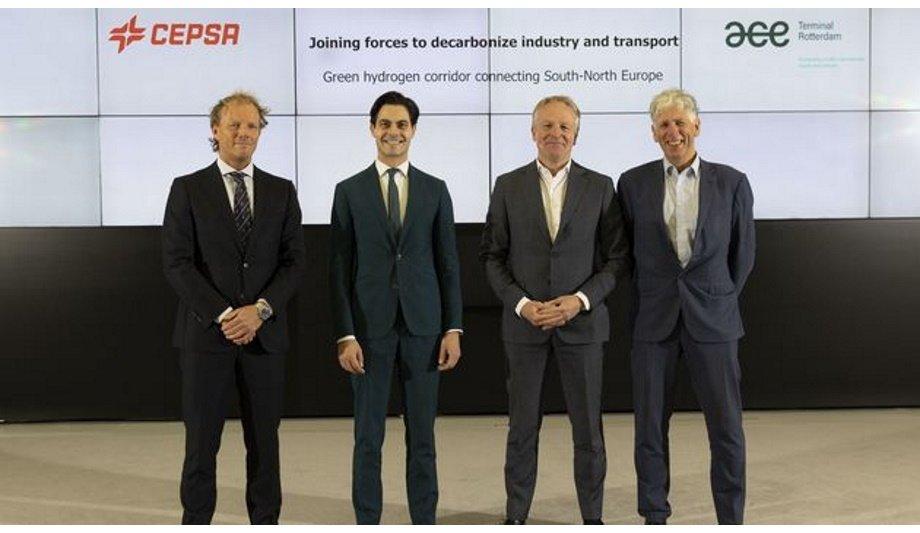Joining forces to create the green hydrogen supply chain from Spain to the Netherlands, Cepsa and ACE Terminal have signed a Memorandum of Understanding (MoU). The Spanish energy company will supply green ammonia to the planned ACE import terminal in the port of Rotterdam.
The green ammonia is destined for end use applications in the industry after conversion of the ammonia back into hydrogen, or for direct end use in the shipping and other industries in Northwest Europe
Europe's largest green ammonia import terminal
The agreement strengthens the green hydrogen corridor between the north and south of Europe
The Memorandum of Understanding (MoU) with Cepsa is the first of agreements ACE signs for green hydrogen and ammonia imports to create Europe’s largest green ammonia import terminal.
The agreement strengthens the green hydrogen corridor between the north and south of Europe, and represents a significant milestone in the European strategy to decarbonise and develop renewable hydrogen and sustainable fuels.
MoU signed between Cepsa and ACE Terminal
Rob Jetten, the Minister for Climate and Energy, who was present at the signing of the MoU in Madrid, said: “This MoU between Cepsa and ACE Terminal is a great example of the type of collaborations that are needed and we want to stimulate with the new Memorandum of Understanding in the field of renewable hydrogen between Spain and the Netherlands.”
Rob Jetten adds, “It constitutes a significant milestone for the European Hydrogen Strategy in developing hydrogen corridors between south and north Europe. This will enable us to reduce reliance on fossil fuels and to achieve the Dutch decarbonisation and climate goals.”










